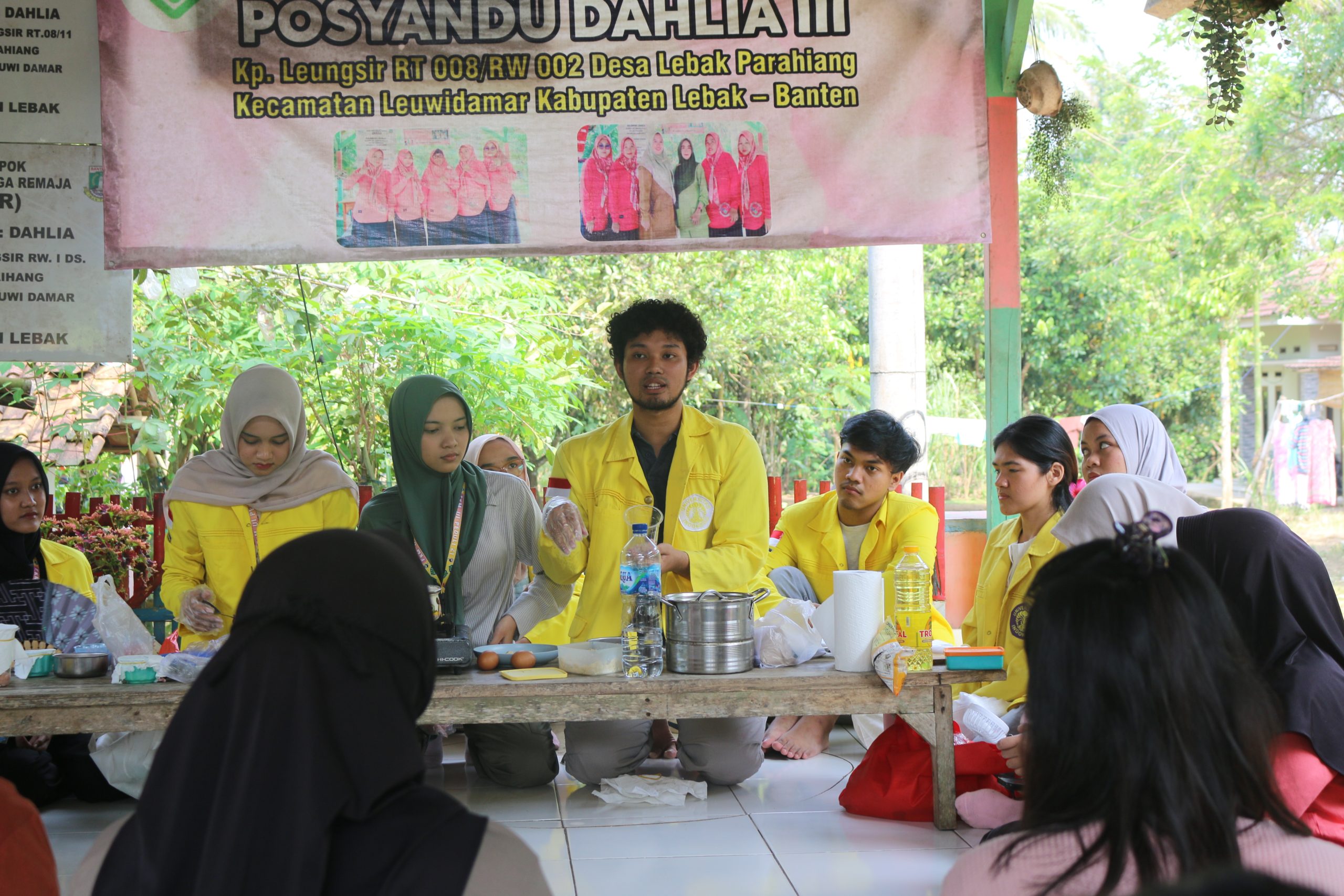The Faculty of Public Health (FPH) Universitas Indonesia (UI), through the FPH UI Peduli 21 program, carried out a series of community service activities titled “Accelerating Community Roles and Capacity in Preventing Stunting Risk Factors through a Multisectoral Approach” in Lebak Parahiang Village, Leuwidamar Subdistrict, Lebak Regency, Banten Province, from July 13 to 20, 2025. This initiative was a response to the high stunting prevalence in Lebak Regency, which has reached 35.5%—the highest rate in Banten Province. FPH UI Peduli 21 is a community service-based program initiated by the Community and Social Affairs Department of the FPH UI Student Executive Board (BEM IM FPH UI) 2025, focusing on stunting prevention through direct community intervention and multisectoral engagement. A total of 87 students, including committee members and volunteers, implemented the program and reached more than 300 community members in the village.
The activities included health education and promotion for school children, training for village health cadres, education sessions for women of reproductive age, pregnant and breastfeeding mothers, as well as home visits to provide counseling to families. Additionally, there was a workshop on complementary feeding (MPASI) preparation and the distribution of supplementary food (PMT) for all pregnant women, including those with Chronic Energy Deficiency (CED). As part of advocacy efforts, the FPH UI Peduli 21 team also held a Village Forum, which featured presentations of research findings and stunting intervention recommendations based on field surveys. All activities were carried out by volunteers who were UI students from various cohorts and study programs.
“FPH UI Peduli addresses stunting from both direct and indirect causes. Environmental issues such as waste management also contribute to stunting and public health, which is why our interventions also target this aspect,” said Itsnaini Anna Nabilah, Project Officer of FPH UI Peduli 21.
FPH UI also collaborated with Menabung Air Foundation to hold a Biopore Workshop as an indirect effort to prevent stunting through environmental management. In this partnership, the foundation fully supported the event by providing 100 biopore pipes, drilling equipment, and educational leaflets. The initiative was a response to the absence of an integrated waste management system in the targeted village. Biopores offer a solution for independently managing organic waste, increasing groundwater absorption, and reducing pollution risks caused by open burning.
The FPH UI Peduli 21 program concluded with a community celebration on July 19, 2025, as a form of appreciation and a celebration of collaboration between students and the community. The event not only marked the end of the program but also strengthened the spirit of mutual cooperation and sparked hope for sustainable change.
As a commitment to program sustainability, FPH UI Peduli 21 will return to Lebak Parahiang Village in September 2025 to conduct monitoring and evaluation (M&E). This activity aims to measure the program’s impact and assess how well the community has adopted the introduced practices. The team will conduct interviews with village officials, health cadres, and residents who participated in various activities, including the biopore planting. “Program success is not only measured by the number of activities held but by how much the community feels involved and benefits in a tangible way. We hope that the changes sparked by this program will continue to grow independently within the community,” Anna concluded. (DFD)

